Business Screening
Identify UBOs
and assess key beneficiary risk.
Screen businesses and ultimate beneficial owners from global AML and companies’ databases.
See it in action:
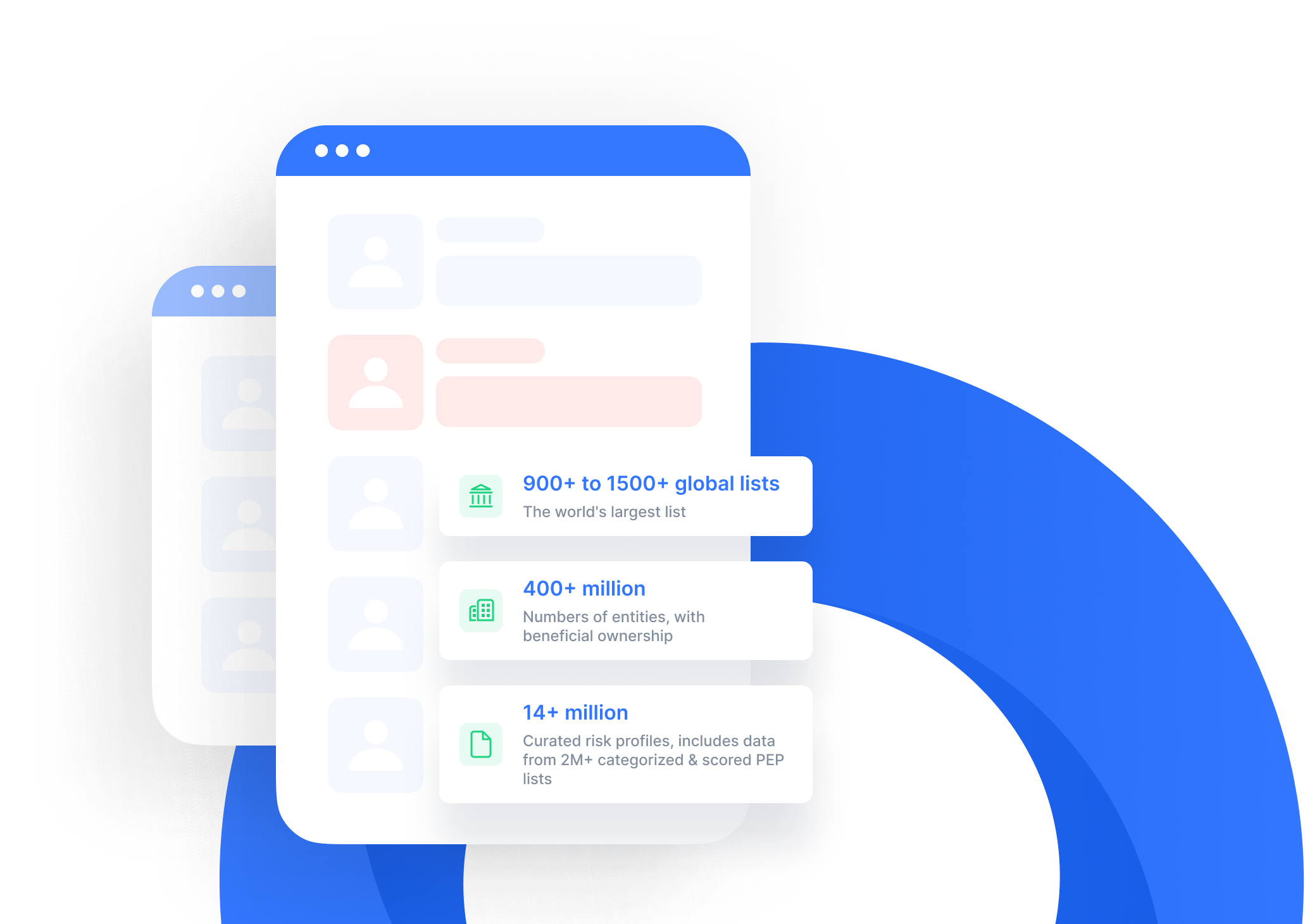
Why choose us?
Limit financial manipulation and prevent operational losses and penalties.
Prevent unintended association with money launderers and financial criminals.
Comply with regulators’ KYC & AML/CFT guidelines.
How it works?
Step 1
Evaluate ownership structure
and identify UBOs.
Step 2
Perform Screening checks
on identified UBOs.
Step 3
Continuously monitor to identify
suspicious activities and changes in beneficial ownership.
Business Screening Features
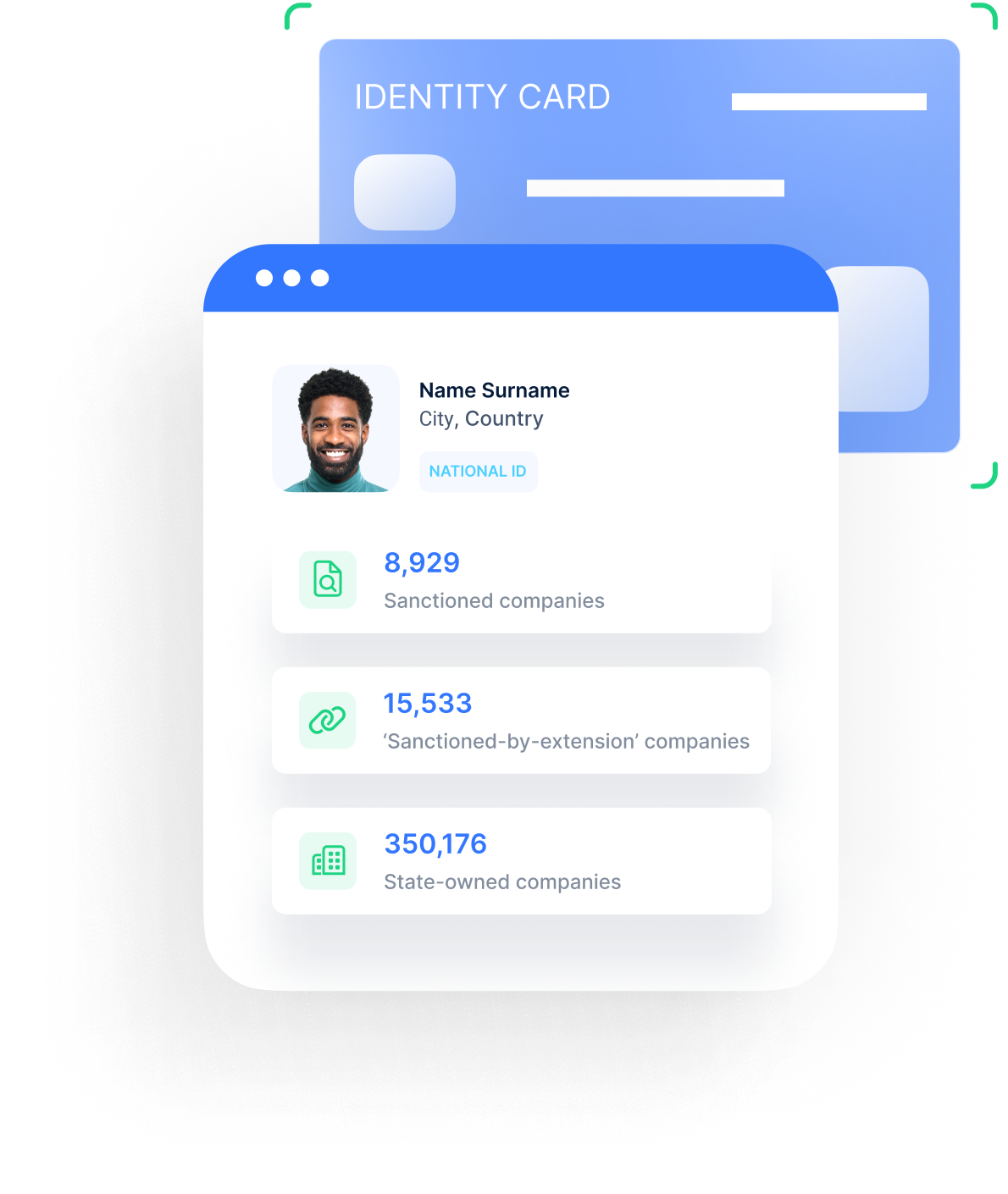
UBO Identification
Utilise uqudo’s large database of UBOs from 350,000+ data sources and business screening solutions to identify beneficial owners and calculate their risk values.
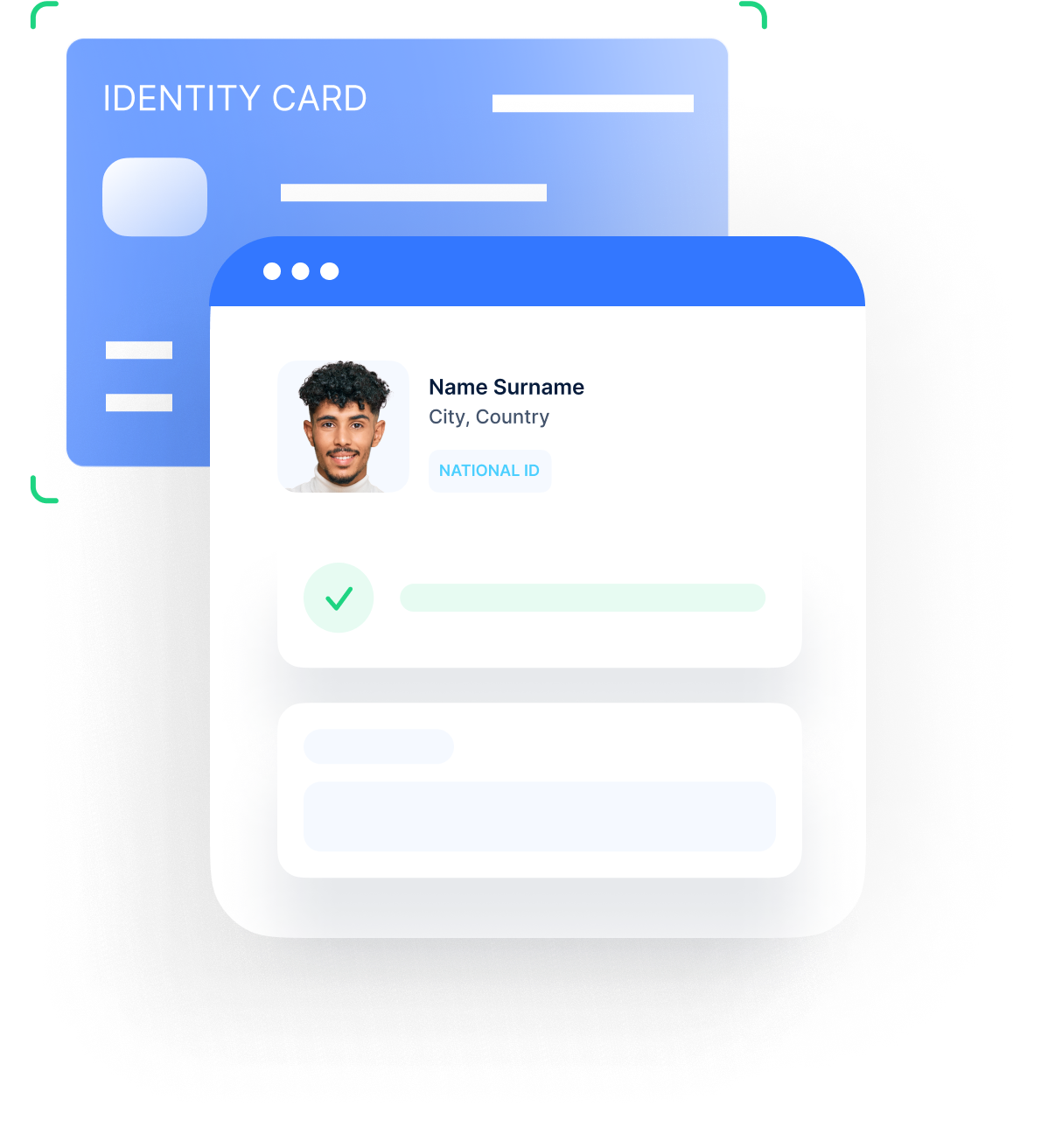
UBO Screening
Identified beneficial owners are then screened against
- Sanction lists that include international and regional sanctioned individuals.
- PEP lists, to identify if a UBO is a prominent political leader, or is associated with one, to evaluate their risk profile.
- Adverse media lists to uncover potential involvement in criminal activities.

Constant Monitoring
Continuously evaluate UBOs and their transactional behaviour, with our AML solutions, while complying with due diligence and reporting regulations, to fight financial crime and corruption.
Secure, frictionless, & fully compliant digital onboarding. Integrated seamlessly within your app.
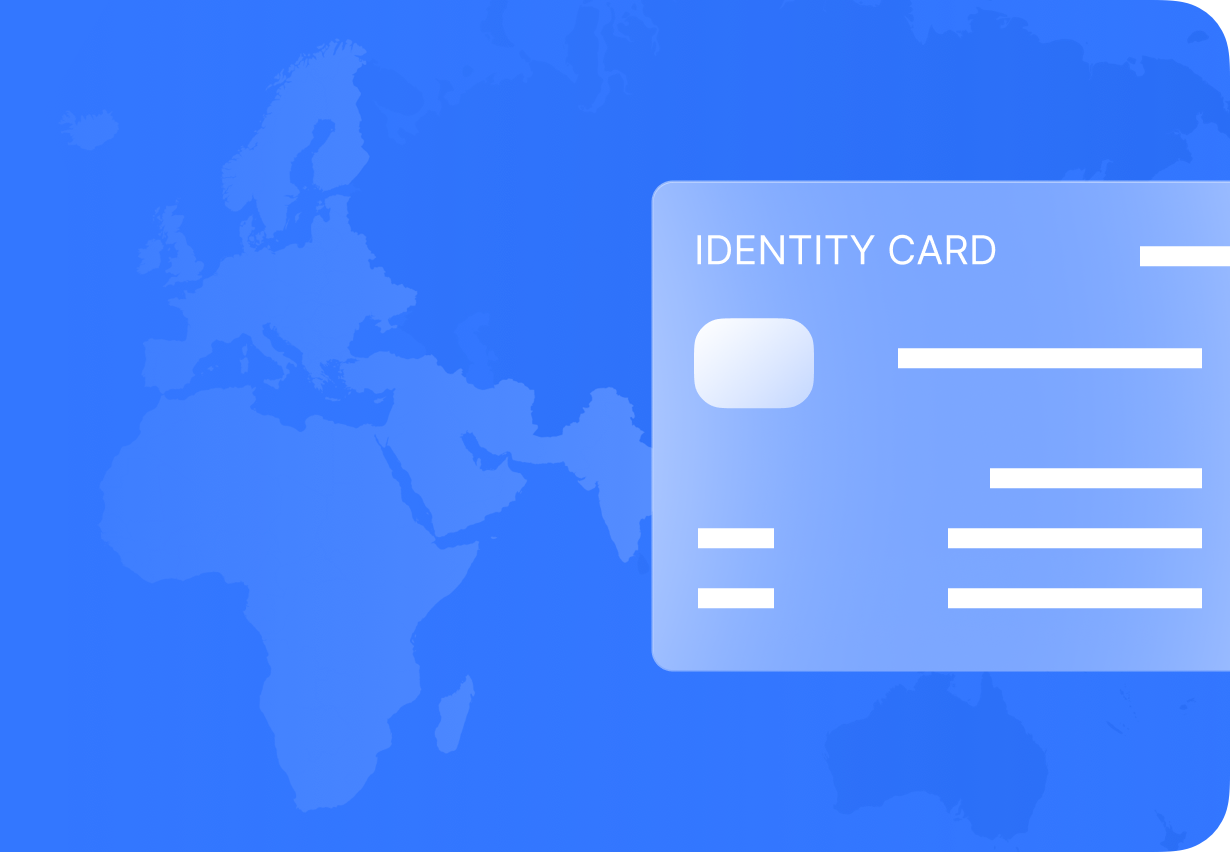
Latest KYB updates
What is KYB? Why is it necessary for your business?
Chandrika Mahapatra
KYC Content Specialist uqudo
Why is authentication important for your company?
Chandrika Mahapatra
KYC Content Specialist uqudo
Our clients
Easily integrate  with your tech stack.
with your tech stack.
Use our simple and secure Web SDK, Mobile SDK, or RESTful API to seamlessly integrate identity capabilities into your operations.
See documentationAn award-winning team
uqudo is proud to be recognised by some of the world’s most distinguished organisations.
We price based on successful onboarding.
Say goodbye to request-based fees, repeat charges, and spiralling customer acquisition costs.
FAQ
What is KYB?
Know Your Business (KYB) refers to the controls that a company must implement to ensure its clients are not engaged in criminal activity. It is the process of due diligence that should be undertaken before dealing with any organisation.
What is the difference between KYC and KYB?
KYC (Know Your Customer) refers to verifying the identity of an individual, whereas KYB (Know Your Business) analyses and verifies the identity of companies.
Why is KYB necessary?
KYB helps companies obtain essential information about their potential clients, in order to protect their interests while dealing with other businesses. It also ensures that organisations are not indirectly associated with fraudulent activities.
The main advantages of a comprehensive KYB Screening procedure are:
- Helps evaluate the business authenticities of companies, and identify changes in transactional behavior, which sometimes indicate fraud.
- Identifies the Ultimate Beneficial Owner (UBO) and evaluates their risk profiles.
- Screening key stakeholders prevents the occurrence of financial fraud and makes companies trustworthy.
Who are UBOs?
A UBO (Ultimate Beneficial Owner) is the ultimate business owner of an organisation. A UBO can be classified as someone
- who owns more than 25% of the company’s shares.
- who controls more than 25% of the voting rights.
- who is a beneficiary of at least 25% of the organisation’s capital.
- who is a shareholder, including those with bearer shares that can be transferred anonymously.
Can uqudo verify KYB documents in languages other than English?
Yes, uqudo’s KYB coverage includes more than 98 languages, including Arabic, English, Afrikaans and many more.
Privacy Overview
| Cookie | Duration | Description |
|---|---|---|
| cookielawinfo-checkbox-advertisement | 1 year | Advertisement cookies are used to provide visitors with relevant ads and marketing campaigns. These cookies track visitors across websites and collect information to provide customized ads. |
| cookielawinfo-checkbox-analytics | 11 months | This cookie is set by GDPR Cookie Consent plugin. The cookie is used to store the user consent for the cookies in the category "Analytics". |
| cookielawinfo-checkbox-functional | 11 months | The cookie is set by GDPR cookie consent to record the user consent for the cookies in the category "Functional". |
| cookielawinfo-checkbox-necessary | 11 months | This cookie is set by GDPR Cookie Consent plugin. The cookies is used to store the user consent for the cookies in the category "Necessary". |
| cookielawinfo-checkbox-others | 11 months | This cookie is set by GDPR Cookie Consent plugin. The cookie is used to store the user consent for the cookies in the category "Other. |
| cookielawinfo-checkbox-performance | 11 months | This cookie is set by GDPR Cookie Consent plugin. The cookie is used to store the user consent for the cookies in the category "Performance". |
| viewed_cookie_policy | 11 months | The cookie is set by the GDPR Cookie Consent plugin and is used to store whether or not user has consented to the use of cookies. It does not store any personal data. |

Please wait while you are redirected to the right page...















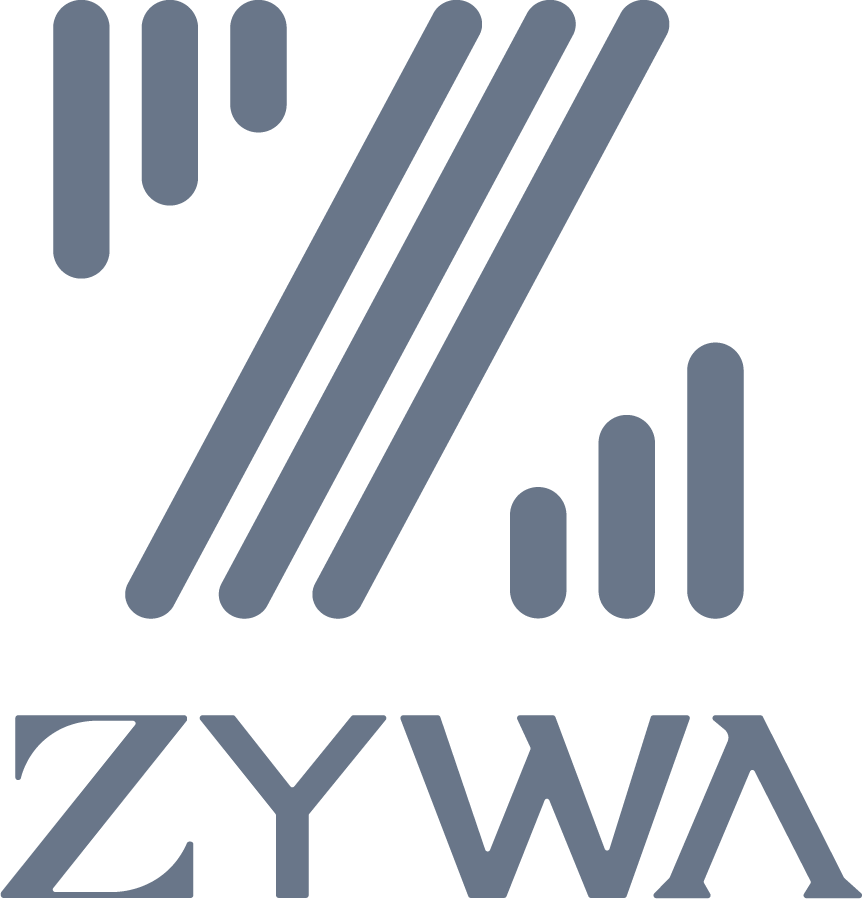
 with your tech stack.
with your tech stack.








